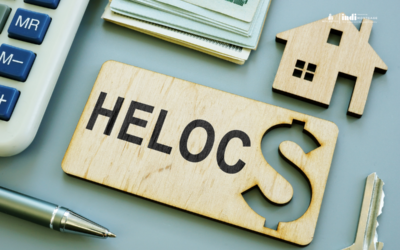Welcome To Our Mortgage Educational Blog About:
First Time Home Buyers Closing Costs

Buying your first home? Congratulations! While it can be exciting to buy a new house, there are a lot of moving parts and paperwork to keep track of—and it can start to feel like there’s no end in sight.
In addition to the standard ideas of buying a home, you’ll also have to deal with the practicalities of moving your belongings and arranging for your new home to be ready. And let’s not forget about financing your new home—a task that can feel like pulling teeth if you don’t know what to look for. But are these the only costs you should be thinking about? No!
What Should First-Time Homebuyers Know About Closing Costs
Perhaps the most important thing to factor in when buying a home is the closing costs—the costs associated with bringing your new home into being. It could be as small as a few hundred dollars or as big as thousands, depending on where you live and how much you’re purchasing. And before you get frustrated or overwhelmed, read on for information about what these costs are, where they come from, how they’re calculated, and some proven tips on how to avoid them.
What Are Closing Costs?
First time home buyer closing costs are the expenses associated with purchasing a new house—the stuff that comes after you and your real estate agent have negotiated the final price for your home. Typically, closing costs fall into two broad categories and add up to 2% and 5% of the total cost of the home: lender fees and third-party fees.
Lender fees— this one is pretty self-explanatory. These include processing fees from your mortgage broker, bank, or credit union, as well as appraisal and origination fees charged by banks and other lending institutions. Depending on where you live, there may also be local transfer taxes (usually included in your monthly mortgage payment) which can vary by the municipality; these taxes go toward paying for things like schools, roads, and emergency services.
Third-party fees—here’s where it gets tricky! This category of closing costs includes homeowner’s insurance, property tax payments, attorney fees, homeowners’ association dues, and more.
Unfortunately, there aren’t any hard-and-fast rules when it comes to how much closing costs will run. The good news is that you’ll know exactly what they are before you buy because they’ll be listed right on your settlement statement (which is basically just a big bill of all your closing costs). Overall, closing costs tend to average out around 3% of your purchase price.
How Much Are Closing Costs for a First-Time Homebuyer?
Closing costs for a house can vary between 2% and 5% of the home’s value. And believe it or not, closing costs can add up FAST. That’s why—if you’re a first-time homebuyer who’s looking to buy a $200,000 house—you could be looking at $4,000 to $10,000 in closing costs alone if you fail to negotiate or do your research!
Costs Before Closing Date
When you buy a home, there are additional costs that go along with your monthly mortgage payment. These closing costs can add up to a significant amount of money, and it’s important to understand what they are and how much you might need to pay.
Earnest money
The borrowing phase begins when you take out a HELOC and lasts for ten years, which is called the draw period. During this time, you borrow money up to your credit limit. You can pay it back at your leisure or even make a small payment each month and let the remaining balance accrue interest.
Appraisal
An appraisal is ordered by your lender to ensure that the home you’re purchasing is worth the amount you’re paying for it. An appraisal fee averages $300 to $400 but can be as high as $600 in some areas. The appraiser will visit your new home and review sales data to determine its value. If the appraisal comes back less than what you’re paying, you may have to pay more cash at closing or ask the seller to reduce their asking price so that it matches up with the appraisal report’s value amount.
Home inspection
A home inspection is used to assess the condition of a property, including its systems and structure. The inspector will provide you with an evaluation of the property’s physical condition and identify any major problems that need repair or replacement before completing the purchase of your home. A typical inspection costs between $250-$500 depending on where you live and how large your home is.
Costs at Closing
When you buy a house, you will encounter a series of fees and expenses. Many of these are closing costs, which are paid at the closing of a real estate transaction. The closing is when the title to the property is transferred from the seller to the buyer.
Points
On most mortgages, there is a charge called “points,” and each point is equal to 1% of the total loan amount. These points are paid upfront and can be used to lower your interest rate or buy-down your monthly payment (which amounts to the same thing). If you have a high credit score, then you might qualify to pay fewer points than someone who has less-than-perfect credit.
On most mortgages, there is a charge called “points,” and each point is equal to 1% of the total loan amount. These points are paid upfront and can be used to lower your interest rate or buy-down your monthly payment (which amounts to the same thing). If you have a high credit score, then you might qualify to pay fewer points than someone who has less-than-perfect credit.
Credit Report Fees
Credit report fees are charged by lenders to cover the cost of running your credit report. They usually run about $25-$30 per person involved in the transaction. This fee is usually passed on to the buyer and is non-refundable even if you don’t get the loan!
Flood Determination
This is a fee that varies from $10-$15 depending on whether you’re buying or refinancing. It’s paid to an outside company that determines whether or not your house is located in a flood zone. If it is, you’ll need special insurance to protect your home from flooding disasters!
Government Taxes and Fees
There are a number of government fees associated with real estate transactions, including Recording Fees, Transfer Tax, Document Prep Fee, and Title Examination. These fees can vary greatly by state and county, but you should expect to pay anywhere from $250-$400 in government fees when you close on your home purchase.
Beyond these fees, there are also other costs that you may encounter.
How Can First-Time Homebuyers Reduce Closing Costs?
There are many ways first-time homebuyers can reduce their closing costs. In some cases, you might not have a choice.
Negotiate
One of your most powerful negotiating tools is your purchase offer. Your offer will be contingent on a number of things, including what condition you find a property in and whether or not you can get your financing approved by a certain date (aka your due diligence period). Before submitting an offer, make sure you understand what conditions are required and when they need to be met. If one of these conditions isn’t met by closing day, then you have every right to ask for it to be waived!
Comparison Shopping
Don’t be afraid to shop around for a mortgage lender! It’s easy, just call three different lenders and ask them what their rates are on a 30-year fixed-rate loan with X down payment and Y credit score (and whatever other information you know about yourself). This way, you’ll be able to compare shops between lenders and get an idea of who offers better terms. Most mortgage companies post their interest rates online, so it’s very easy to get a sense of what terms are being offered by whom. There are also many banks that may have exclusive first-time home buyers incentive programs that might help to reduce your closing costs. Be sure to check out all available programs before choosing your lender!
Conclusion
In conclusion, there are many different fees and expenses associated with buying a home. While you may not be able to avoid all closing costs, you do have many tools at your disposal that can help you reduce your out-of-pocket costs! If it’s possible to keep some cash in reserve so that you don’t have all of your funds tied up in a property, then that might be a good idea as well.
Don’t hesitate to contact us with any questions you may have.
Recent Educational Blogs
Smart Steps for First‑Time Home Buyers in Canada
Feb 2026 | Smart Steps for First‑Time Home BuyersBuying your first home is one of life’s most exciting milestones—but it can also feel like stepping into uncharted territory. Between saving, budgeting, and securing financing, there’s a lot to think about before you...
First Responder Mortgage Program
Jan 2026 | First Responder Mortgage ProgramAt Metro Mortgage Group, we have deep respect for the everyday heroes of our city — the members of the Edmonton Police Service, EMS, and Fire Rescue Services. Your commitment keeps our community safe, often at great personal...
Pros and Cons of a Home Equity Line of Credit (HELOC)
Dec 2025 | Pros and Cons of a Home Equity Line of Credit (HELOC)If you’re a Canadian homeowner, you’ve probably heard friends or family talk about using a home equity line of credit, or HELOC. People often use it to renovate, consolidate debt, or help kids with school...



